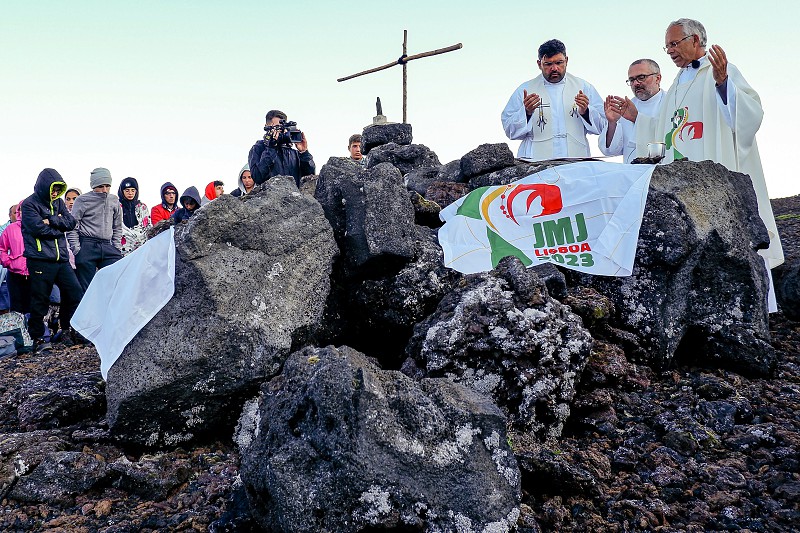The Mountain Pact was signed today at the top of Pico, in the Azores, by 116 young Christians, who pledged to protect the ecosystem, after climbing to the summit of Portugal with the Bishop of Angra.
“We as Christians assume this responsibility, not only with our neighbor, but with the world and our ecosystem. It is respect for living beings, for the balance in everything around us and taking responsibility for caring for our common home,” Susana Cabral, spokeswoman for the group, told Lusa news agency in the Pico crater.
The Mountain Pact was signed at the end of the Eucharist at the top of Pico, celebrated by the Bishop of Angra and the Azores Islands, Armando Esteves Domingues, who the day before led the climb to the highest point in the country, in connection with World Youth Day (WYD).
In all, the initiative called “Closer to Heaven” brought together 129 people (including 116 young people) at the highest point in Portugal, including young people, WYD volunteers and other clergy figures.
Susana Cabral stressed that the ecosystem “is not just plants and animals”, and that a “general responsibility” is needed that results in “greater care in the interaction between human beings”.
“Planet Earth is crying out for care. All forms, whether through a pact or through agreements, are very important for everyone to become aware of this. Each one, in small gestures, has a very important role for the future of our planet “, stressed the native of the island of Santa Maria.
Today, the celebration of Bishop Armando Esteves Domingues took place in the same place of the crater where the mass of 1954 took place (which until today was the only liturgy recorded on the mountain), using the same altar (built in stone), which is still standing after several decades.
“Climbing Pico is a dream for so many people – and it was for me too. Overcoming the difficulties, celebrating here [in the crater] and signing a pact, which is a bit like a blank check where our life is,” the bishop told reporters after the ceremony.
For Armando Esteves Domingues, the pact has a “very simple meaning”: to make everyone “commit to universal brotherhood” and to “creation”.
“Today, man is tremendously threatened by so many risks and dangers, some of which come from disrespect for nature. There is that maxim that God always forgives, man sometimes forgives, but nature never forgives. We will pay for the harm we have done to it”, he said.
He concluded: “For these young people and this youth, this can be a pact that motivates them for the future because we all need to be much more proactive.”

